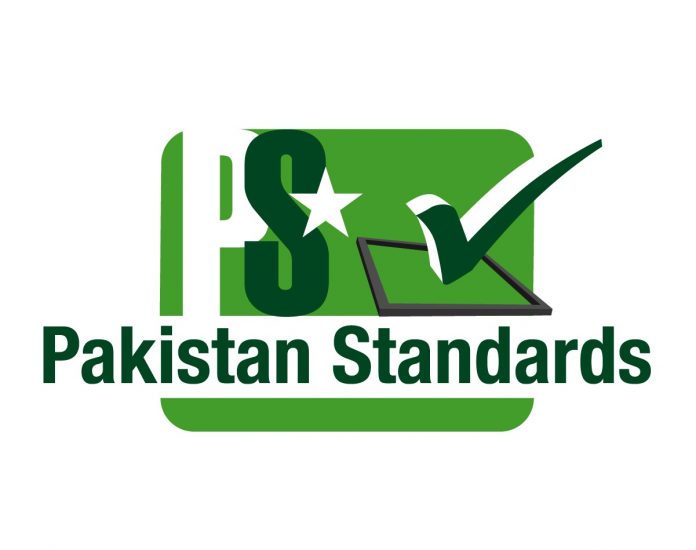ISLAMABAD: In a significant development aimed at enhancing road safety and regulatory oversight, the Pakistan Standards and Quality Control Authority (PSQCA) has formally approved a Type Approval Scheme for four-wheeler vehicles, allowing new models to be tested and certified through accredited foreign laboratories until Pakistan develops its own testing infrastructure.
The decision was taken in a recent meeting of PSQCA’s Board of Directors (BoD), which also authorized amendments to the Pakistan Conformity Assessment Rules, 2011, under Section 26 of the PSQCA Act, 1996, to officially incorporate the Type Approval framework. The Board further permitted the authority to sign Mutual Recognition Agreements (MRAs) with foreign automobile testing laboratories, paving the way for third-party international testing and certification.
According to meeting minutes, the decision follows directives from the Public Accounts Committee (PAC), which, in a session held on June 15, 2022, expressed concern over the absence of vital safety features in vehicles assembled or imported into Pakistan, including airbags, child locks, and braking systems. The PAC had directed that these safety components be made mandatory under Pakistan’s national standards framework.
In response, the Ministry of Science and Technology (MoST) prepared a draft Statutory Regulatory Order (SRO) and summary for the Cabinet Committee for Legislative Cases (CCLC), which was approved in January 2023 and ratified by the Federal Cabinet on January 24, 2023. However, the SRO has yet to be issued, largely due to objections from powerful automotive lobbies, including the Pakistan Automotive Manufacturers Association (PAMA), the Pakistan Association of Automotive Parts & Accessories Manufacturers (PAAPAM), and the Engineering Development Board (EDB), who argued that implementation should be deferred until local testing facilities are established.
With Pakistan lacking certified vehicle testing laboratories, PSQCA proposed adopting a foreign-lab-based type approval model, already in use in several developing economies. The scheme will allow Pakistan to certify vehicle models abroad while local infrastructure and staff training are developed, a process expected to take at least six months.
“This decision brings Pakistan closer to global safety standards and directly addresses long-standing public and parliamentary concerns about unsafe vehicles on the roads,” a PSQCA official said.
Institutional Turf War: EDB vs PSQCA
However, the PSQCA’s new initiative comes amid a deepening institutional tussle over who controls Pakistan’s vehicle safety and quality standards.
As reported earlier, the Engineering Development Board (EDB) — working under the Ministry of Industries and Production (MoIP) — recently claimed the same mandate through two notifications enforcing UNECE WP-29 Regulations, effectively sidelining PSQCA. Those notifications made it mandatory for all imported and locally manufactured vehicles to comply with dozens of safety and environmental standards under WP-29 but assigned the enforcement role not to PSQCA, the national standards body, but to EDB.
Officials and experts describe this as a clear overlap and violation of statutory authority, as the PSQCA Act of 1996 designates PSQCA as the sole national standards body for Pakistan, responsible for all conformity assessments and safety standards across industries, including automobiles.
A senior Ministry of Science and Technology official termed EDB’s move “legally untenable and administratively flawed,” warning that “creating parallel regulatory powers undermines Pakistan’s credibility under the WTO’s Technical Barriers to Trade (TBT) Agreement,” which recognizes only one national standards body per country.
According to insiders, the ongoing tug-of-war between PSQCA and EDB reflects intense pressure from the automobile lobby, which has long resisted independent oversight of local manufacturing standards. While EDB functions primarily as a policy facilitation agency, it lacks testing, inspection, and certification capacity, functions that fall squarely within PSQCA’s statutory domain.
Industry watchers argue that by shifting regulatory power to EDB, the auto industry gains a more lenient gatekeeper, allowing manufacturers to continue producing vehicles with minimal safety compliance. Consumer groups, meanwhile, say PSQCA’s sidelining is a setback for road safety.
“Instead of empowering the national standards authority, the government is handing control to a facilitation body influenced by industry. This risks diluting the entire safety regime,” said a senior automotive safety analyst.
Public Safety at Risk
The lack of standardized safety enforcement has already drawn concern from the Public Accounts Committee and the Senate Standing Committee on Science and Technology, both of which have questioned why vehicles sold in Pakistan continue to lack basic safety features found in export models of the same brand.
Experts warn that the institutional conflict between PSQCA and EDB could further delay the implementation of safety regulations, leaving consumers vulnerable. “Until there’s clarity of mandate and the SRO is enforced, unsafe vehicles will continue to roll out unchecked,” one official noted.
Following the BoD’s approval, PSQCA is expected to begin negotiating MRAs with foreign labs and revising its conformity assessment framework. However, observers say the real challenge lies not in technical readiness, but in resolving the bureaucratic turf war that has allowed unsafe vehicles to remain on Pakistani roads for decades.
If implemented properly, the Type Approval Scheme could finally lay the foundation for a modern, transparent, and internationally aligned vehicle safety regime. But that will require the government to reaffirm PSQCA’s statutory mandate and resist efforts to dilute its authority.
Discover more from Brackly News
Subscribe to get the latest posts sent to your email.



